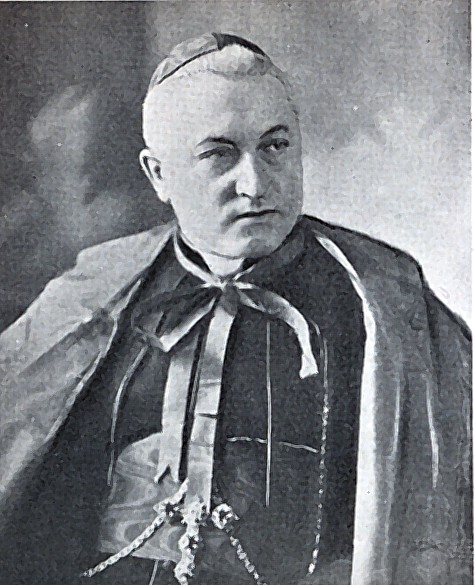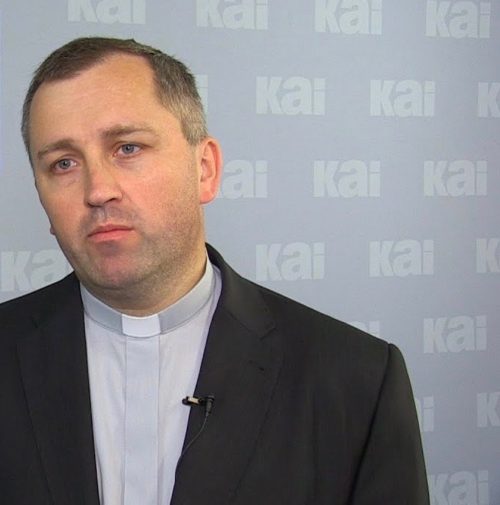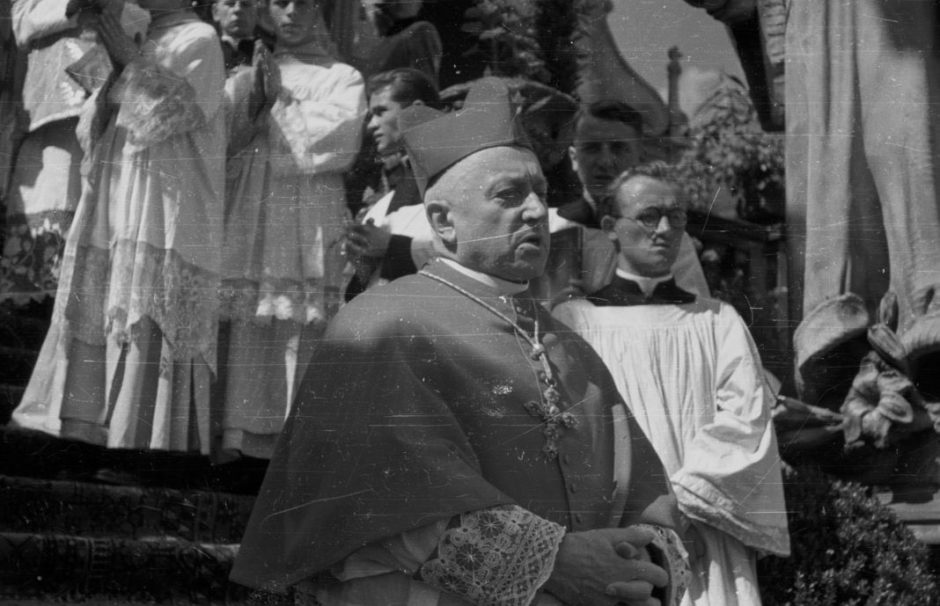Pope Francis recently issued a decree recognizing the “heroic virtues” of Cardinal August Hlond, the Roman Catholic primate in Poland from the 1920s to the 1940s. It brought Hlond one step closer to sainthood, an exalted status he surely does not deserve.
One of his foremost admirers, the Polish priest Boguslaw Koziol, is arguing his case before a special Vatican body, the Congregations for the Causes of Saints. On the face of it, Koziol’s argument is compelling. Hlond, the highest ranking church official in Poland from 1926 until his death in in 1948, resisted the Nazi occupation and struggled to maintain the church’s independence in the first years of the atheistic Communist era. On a personal level, he appears to have been a formidable force, apparently loved and even adored by his flock.
Yet, as the American Jewish Congress correctly points out, the canonization process will be seen as an “expression of approval of Hlond’s extremely negative approach toward the Jewish community.”

Three million Jews lived in Poland, comprising nearly 10 percent of its population, during the first decade of Hlond’s term of office. By that point, Jews had become the object of contempt, scorn and discrimination in wide swaths of Polish society. During the 1930s, fascists clamored for “ghetto benches” in Polish universities for Jewish students, while leading political and civic figures called for an economic boycott against Jewish shopkeepers and the removal of Jews through emigration.
In 1936, in an infamous pastoral letter which incited Poles against Jews, Hlond proclaimed the existence of “a Jewish question” in Poland, claiming it would preoccupy the country as long as “the Jews remain Jews.”
Describing Jews as enemies of the church, Hlond wrote, “It is an actual fact that the Jews fight against the Catholic Church, they are free thinkers, and constitute the vanguard of atheism, Bolshevism and revolution. The Jewish influence upon morals is fatal, and the publishers spread pornographic literature. It is also true that the Jews are committing frauds, practicing usury, and dealing in white slavery. It is true that in the schools, the Jewish youth is having an evil influence, from an ethical and religious point of view, upon the Catholic youth.”
In a caveat, he admitted that his crass generalizations were not necessarily accurate. Not all the Jews, he noted, exhibited such characteristics. Some were “ethically outstanding, noble and respectable,” he conceded. Having already damned and condemned them as a group, Hlond backtracked, saying that all Jews should be “respected and loved as persons and as neighbors.”
Hlond, in his pastoral letter, also advocated a boycott of Jewish businesses: “One does well to prefer his own kind in commercial dealings and to avoid Jewish stores and Jewish stalls in the markets, but it is not permissible to demolish Jewish businesses. One should protect oneself against the evil influence of Jewish morals, and particularly boycott the Jewish press and the Jewish demoralizing publications, but it is inadmissible to assault, hit, or injure the Jews.”
In a tacit denunciation of Nazi Germany’s antisemitic laws, Hlond warned against edicts “imported from abroad” that are “incompatible with Catholic ethics.” Yet Hlond saw nothing wrong in defaming, stereotyping and marginalizing Jews. He certainly contributed to the antisemitic atmosphere that gripped Poland after it regained its sovereignty in 1918.
Much to his discredit, Hlond did not directly condemn the 1946 pogrom in Kielce, which claimed the lives of more than 40 Jews and prompted tens of thousands of Jews to leave Poland for good. However, the Polish Press Agency — the official news service of the Polish government — distributed a statement attributed to Hlond in which he branded antisemitic outbreaks as “the criminal action of political plotters” and forbade attacks on Jews or their property.
Hlond’s comments were rather disingenuous, to say the least. Having already emboldened Poles to regard Jews as exploiters and enemies, he issued a tepid condemnation of the pogrom.

Koziol, Hlond’s public relations flack, insists that he preached love and tried to shield Jews from violence. But that’s only a small part of the whole story. The truth of the matter is that Hlond propagated terrible myths about Polish Jews and regarded them as foreigners. The vicious anti-Jewish propaganda he disseminated cost Jews dearly before, during and after the Nazi occupation of Poland.
To put it bluntly, Hlond was no saint. Pope Francis should be aware of his very checkered record before he rushes to judgment about his suitability as a saint.
